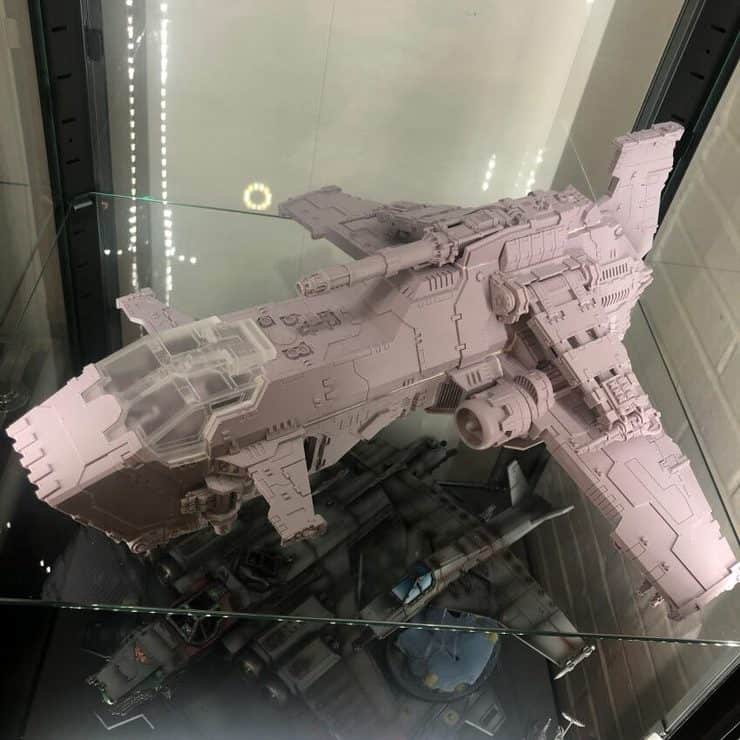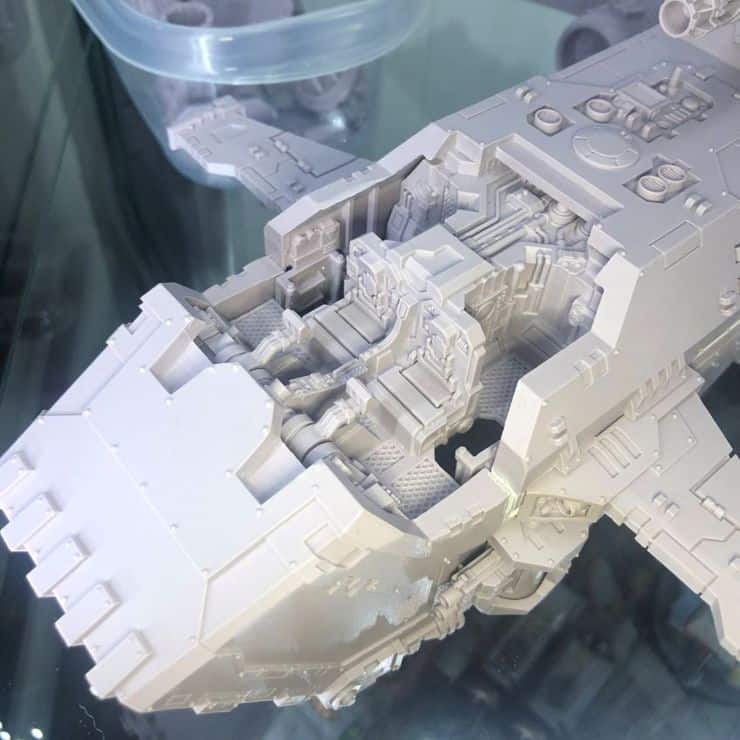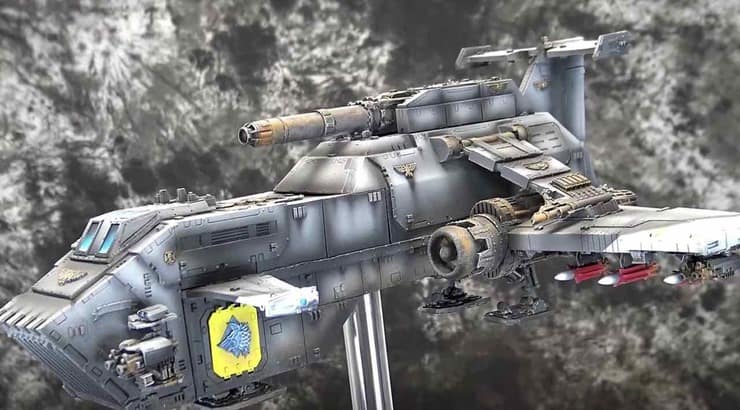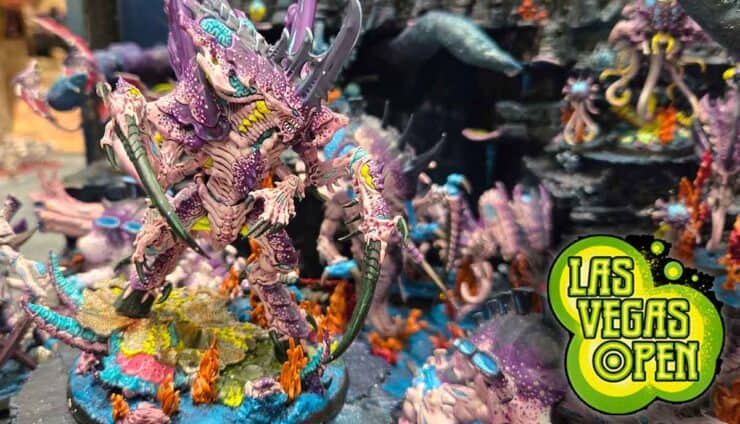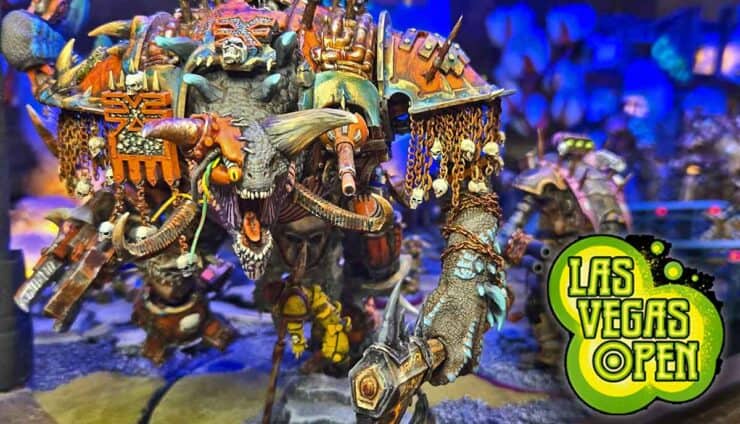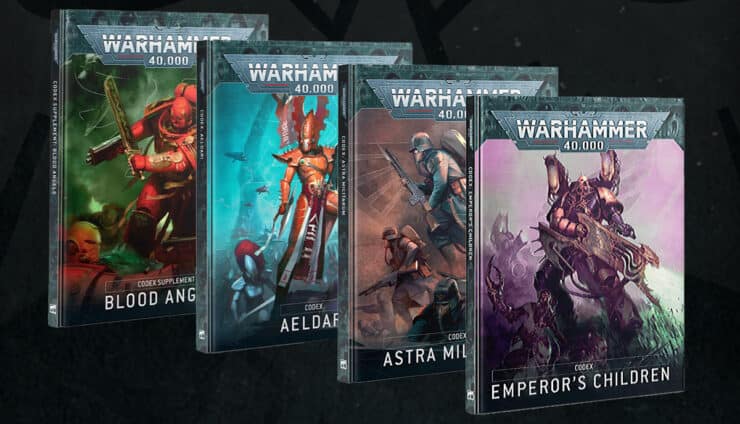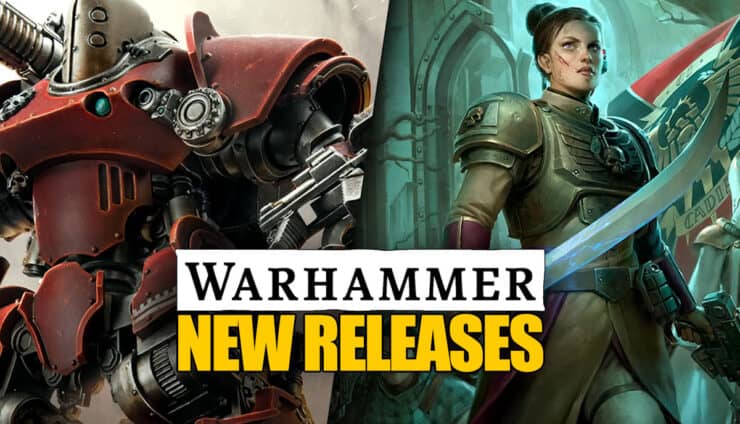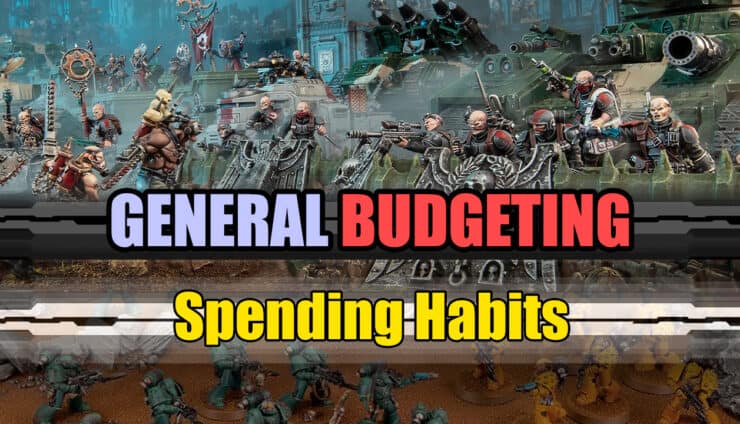Uncover the evolution of the Thunderhawk Gunship in Warhammer 40k, from its pewter origins to modern resin marvels.
Updated February 20th, 2025, by Rob Baer with updated information and links to relevant content.
Ah, the Thunderhawk Gunship – the spacefaring brick of doom that every Warhammer 40k fan loves to ogle. Whether you’re a newbie trying to figure out why everyone is so excited about a flying tank (and how to fit one into your army list) or a long-time fan who remembers the agony of assembling pewter monstrosities, the Thunderhawk has a place in your heart (and the Codex Astartes).
This isn’t just any vehicle; it’s the flying fortress that makes the enemies of the Imperium tremble and makes your wallet cry.
A Quick Look at the Models Through the Years
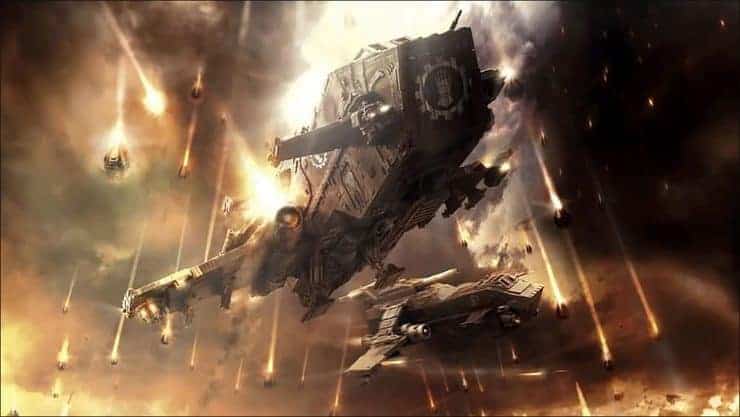
This beast is not just a pretty face; it’s a symbol of the power and might of the Adeptus Astartes, striking fear into the hearts of enemies and envy into the eyes of fellow hobbyists. In the grand saga of Warhammer 40k, the Thunderhawk is more than a model; it’s a legacy.
Here’s a quick list of all the models throughout the years.
- Original Pewter Thunderhawk (1990s)
- Epic Metal Thunderhawk (Mid-90s)
- Resin Thunderhawk (Early 2000s)
- Thunderhawk MK II Resin (2017)
- Plastic Thunderhawk (Epic Scale – Aeronautica Imperialis)
Historical Evolution of the Thunderhawk Gunship
The Early Days: 1990s Pewter Models
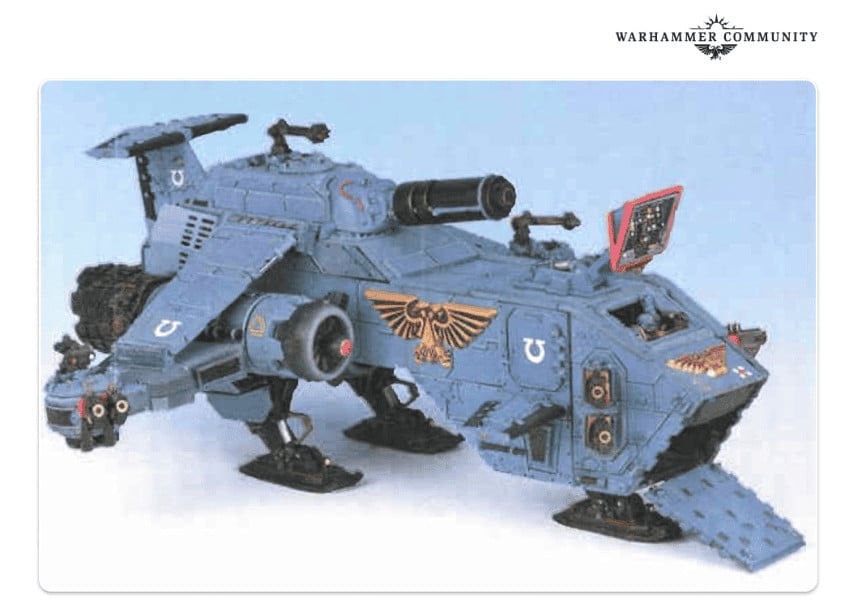
Cast your mind back to the 90s, a time of neon colors and dial-up internet. It was in this era that Games Workshop introduced the original pewter Thunderhawk Gunship. This wasn’t just any miniature; it was a chunk of metal that could probably double as a dumbbell.
The sheer weight and presence of this model made it an instant classic. Priced at an eye-watering $650, it was the holy grail for many collectors.
Building Challenges and Experiences
For those brave enough to purchase it, assembling the pewter Thunderhawk was an adventure in itself. Imagine hundreds of tiny, heavy parts and instructions that felt more like ancient riddles. Builders needed a steady hand, a heap of patience, and enough super glue to make an arts and crafts teacher faint.
The challenge didn’t deter fans; it was part of the charm. Completing a pewter Thunderhawk wasn’t just an achievement; it was a rite of passage.
The Epic Metal Model
Jump forward a bit to the mid-90s, and the Thunderhawk was reintroduced in a form that was, quite literally, heavy metal. This version was a tad smaller (by tad, we mean a lot smaller) but packed with intricate details that made it stand out. From its Turbo-laser Destructor to the numerous bolter turrets, the model was a masterpiece of miniature warfare. It was the kind of model that made other minis on the battlefield feel inadequate.
The Rise of Resin: 2000s Forge World Models
Enter the 2000s, and the Thunderhawk gets a makeover with Forge World’s resin models. These versions took the classic design and enhanced it with modern manufacturing techniques. Lighter than its metal predecessor but no less impressive, the resin Thunderhawk boasted superior detail and modular components, making customization easier and more varied. The Emperor had to be proud of this model!
Notable Builds and Painters
Some of the most celebrated builds came from this era. Hobbyists like Kenny from Next Level Painting showcased the Thunderhawk in ways that seemed almost magical. The resin allowed for better painting surfaces, and painters took full advantage, creating Thunderhawks that looked ready to take flight off the table. From custom chapter insignias to battle-worn weathering, each build was a testament to the builder’s skill and creativity.
The Modern Era: 2017 and Beyond
In 2017, Forge World unveiled the MK II version of the Thunderhawk, a sleeker, more refined model that retained the spirit of its predecessors while embracing modern design sensibilities. This version was a dream to assemble compared to the old pewter monstrosities and offered unprecedented detail and durability.
Advancements in Design and Playability
The MK II didn’t just look good; it played well, too. With updated rules and stats (we have them below), it became a formidable presence in games. Magnetized weapons, detailed interiors, and modular components made it versatile on the battlefield and a joy to build and paint. This model set the standard for what a modern Warhammer 40k kit should be – detailed, durable, and downright awesome.
In the grand chronicle of Warhammer 40k, the Thunderhawk Gunship stands as a testament to the evolution of miniatures. From its humble pewter beginnings to its sleek modern incarnation, it has captured the imaginations of hobbyists and players alike, proving that in the grim darkness of the far future, there’s always room for a big, impressive model.
40k Thunderhawk Gunship Rules
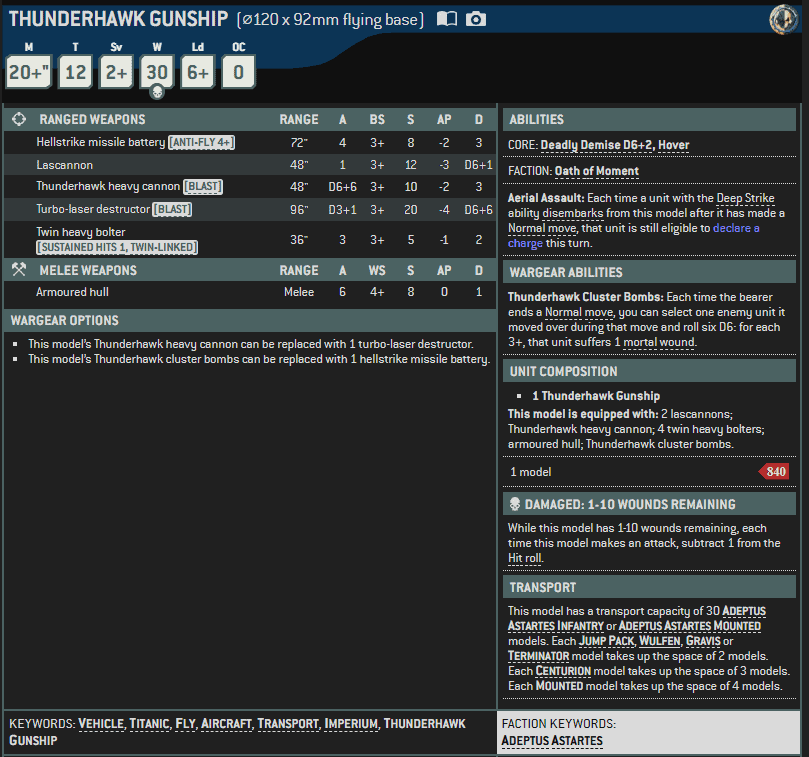
Speed, Durability, and Stats
- This bad boy moves 20”+, meaning it can zoom around like a jet on steroids.
- A 12+ toughness and a whopping 30 wounds mean it laughs off most small arms fire.
- A 6+ save without an invulnerable save? Oof, watch out for high AP weapons.
- Zero OC (Objective Control)—so while it’s great at blowing things up, don’t expect it to hold objectives.
Weapons: It Brings the Pain
- Hellstrike Missile Battery: Anti-Fly 4+, good for bullying aircraft.
- Lascannons: Twin-linked 48” range, hitting hard at AP -3 and Damage D6+1.
- Thunderhawk Heavy Cannon: A big, nasty blast weapon (D6+6 shots!) to clear out hordes.
- Turbo-Laser Destructor: If you want raw single-target destruction, this 96” sniper cannon with D6+6 damage is the way to go.
- Twin Heavy Bolters: Chipping in extra dakka with Sustained Hits 1 for added consistency.
Abilities & Wargear
- Aerial Assault: Lets deep-striking units still charge after disembarking—huge for aggressive plays.
- Thunderhawk Cluster Bombs: Move over an enemy, roll 6D6, and every 3+ deals 1 mortal wound—fun for drive-by bombings.
- Deadly Demise D6+2: It goes out with a bang, so don’t crash it near your own army.
- Transport: Holds a jaw-dropping 30 Adeptus Astartes infantry models or their beefier Wulfen, Jump Pack, Gravis, and Terminator buddies. Centurions take up more room, but this thing is a flying apartment complex.
Weaknesses
- Big target, low save—High AP weapons will mess it up.
- Loses efficiency when wounded—Hitting on 4s at 1-10 wounds sucks.
- No OC—It’s all about destruction, not sitting on objectives.
Final Verdict
The Thunderhawk is the epitome of overkill, bringing absurd firepower, a massive transport capacity, and some cool bombing runs. It’s a centerpiece model that will terrify your opponent—just make sure you protect it, or it’ll go down faster than your wallet after buying one!
Detailed Descriptions of Thunderhawk Models
Size, Weight, and Construction
Ah, the original pewter Thunderhawk Gunship – the granddaddy of them all. Imagine a brick. Now imagine that brick with wings, guns, and the ability to cause severe back pain if lifted incorrectly. This beast weighed in at a hefty several kilograms, and its size was nothing short of intimidating.
It was constructed from pewter, a material that’s as forgiving as a grumpy Tech-Priest on a Monday morning. The sheer heft and solidity made it both a prized possession and a workout regimen in one.
Assembly and Painting Tips
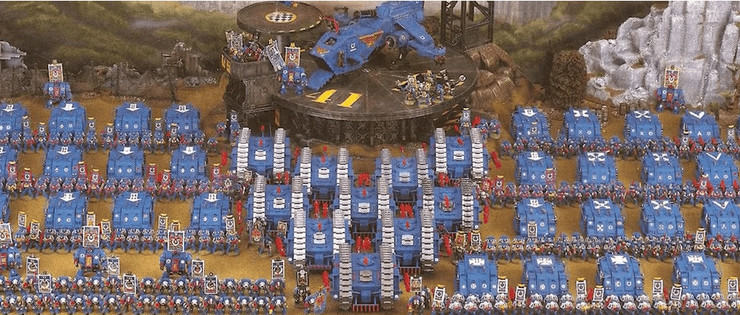
Squidmar’s 40k Thunderhawk
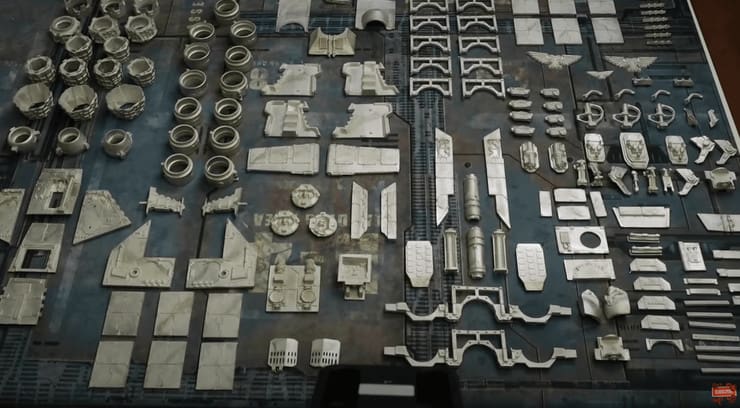
If you want to buy one of these now, the price is much, much higher than the original tag.
This is part two of his journey to get his amazing mini, and he features all the pieces and his thoughts on the whole thing. It’s definitely worth the watch if you want to learn even more about the OG days of super heavies from Games Workshop—believe it or not, this existed before Forge World.
Rob put one of these together himself in the late 1990s for a commission, and it was quite the chore. For example, each pewter panel had to be pinned twice on each edge to support its immense weight. Finishing it was one of the most rewarding projects he has ever worked on.
Assembling this pewter colossus was akin to an epic quest. Instructions? They existed, but they were more like ancient hieroglyphs. Each piece had to be meticulously pinned and glued, a process that tested the patience and resolve of even the most dedicated hobbyist.
Pro tip: have a gallon of super glue and a steady hand. When it came to painting, the key was to manage its weight. A sturdy base coat is needed to seal the pewter, followed by layers of patience and precision. Weathering techniques worked wonders to highlight its battle-scarred glory.
Resin Thunderhawk Gunship
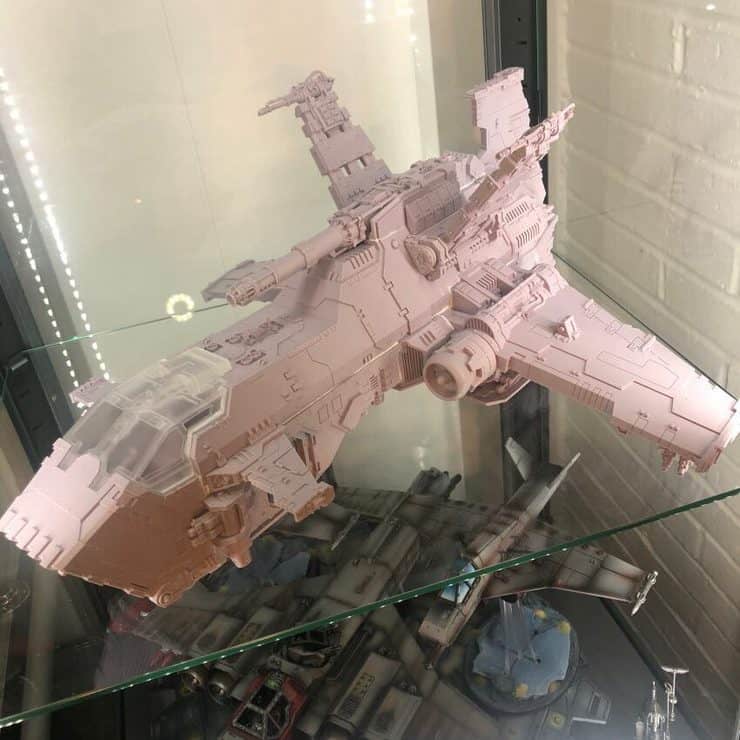
Moving on to the resin iteration, Forge World’s take on the Thunderhawk was a revelation. Lighter than its pewter predecessor yet packed with even more detail, this model boasted impressive features. Its dimensions remained grand, but the weight was significantly reduced, making it more manageable.
Key features included modular weapon systems, a detailed cockpit, and intricate surface textures that begged for a painter’s touch. It was like going from a rotary phone to a smartphone – a leap in usability and style.
Building and Magnetization Techniques
Building the resin Thunderhawk was a more forgiving experience. The parts fit together with greater precision, and resin, while tricky, was easier to work with than pewter (but not as easy as plastic could be). Magnetization became the new buzzword, allowing hobbyists to swap out weapons and parts with ease.
The trick was to plan ahead – ensuring magnets were placed strategically to support the various components. A bit of drilling here, some magnets there, and voila! A customizable, robust Thunderhawk ready for both display and tabletop dominance. However, this leads to a big question:
How Big is a Thunderhawk Gunship?
The resin Thunderhawk, affectionately known as “Thawk,” is an absolute unit of a model. Sporting a 17-inch wingspan, stretching 19 inches from nose to tail, and standing about 7 inches tall at the tail, it’s basically a coffee table centerpiece that screams, “I dominate airspace and shelf space alike.”
Plastic Thunderhawk in Aeronautica Imperialis
Enter the plastic Thunderhawk of Aeronautica Imperialis fame. This model took the iconic design and shrunk it down to a more desk-friendly scale. The detailing remained exquisite, capturing the essence of its larger cousins. Despite its smaller size, it retained the menacing look and feel, making it a perfect addition for collectors and gamers who wanted a Thunderhawk without the need for reinforced shelves.
Buy the Epic Scale Thunderhawk Here
Differences from Full-Size Models
The key difference, aside from the obvious size reduction, was the ease of assembly and affordability. This version was far more accessible, both in terms of cost and the complexity of construction. It allowed more fans to experience the joy of owning a Thunderhawk without the daunting commitment of the larger models. While it might not have the same battlefield presence, it was a delightful homage to its bigger brothers.
- Games Workshop - Warhammer - Legions Imperalis: Legions Astartes Thunderhawk Gunship [EPIC SCALE]
- Legions Imperalis scale miniatures - also called Epic Scale
- An epic scale Legiones Astartes gunship for games of Legions Imperialis
- A tough and versatile flying transport with a devastating arsenal of weaponry - Useable in Aeronautica Imperialis with an appropriate base, sold separately
- These miniatures are supplied unpainted and require assembly – we recommend using Citadel Plastic Glue and Citadel Colour paints.
Last update on 2025-02-21 / Affiliate links / Images from Amazon Product Advertising API
Building & Painting the Warhammer 40k Thunderhawk Gunship
Building a Thunderhawk is no small feat, but with the right tools, it’s a lot more manageable. Essentials include hobby knives, side cutters, and a good set of files. For the more intricate resin parts, a set of micro-drills is invaluable.
You’ll also need a sturdy work surface and plenty of lighting – because nobody likes gluing their fingers together in the dark. And let’s not forget the glue – both super glue for quick bonds and plastic cement for the more substantial joins.
Best Practices for Resin and Pewter Models
Working with resin and pewter requires a bit of finesse. For resin, always wash the parts first to remove any mold release agents – a little dish soap and warm water will do the trick. For pewter, filing down any mold lines and test fitting parts before gluing can save a lot of headaches.
When it comes to assembly, patience is your best friend. Allow glue to fully cure and ensure each piece is securely in place before moving on to the next step.
Step-by-Step Assembly Guide
Preparation is key. Lay out all the parts and check against the instructions to make sure everything is there. Clean up any mold lines or flash, and wash resin parts to ensure a good glue bond. Organize the pieces in the order you plan to assemble them – this will make the process smoother and more enjoyable.
Assembling the Fuselage and Wings
Start with the main fuselage, carefully aligning each section and ensuring a snug fit. Use clamps or rubber bands to hold parts together while the glue sets. When attaching the wings, pinning can provide extra strength. Drill small holes and insert metal rods to reinforce the joints. This will help support the weight of the wings and keep everything aligned.
Magnetizing for Stability and Playability
Magnets are a game-changer. Use them to attach weapons and other components, allowing for easy customization and transport. Plan your magnet placement carefully, ensuring they are strong enough to hold the parts securely but not so strong that they pull apart delicate pieces. Test fit everything before final assembly to make sure the magnets align properly.
How Long is the Thunderhawk Gunship?
This absolute unit from Forge World measures in at a whopping 19 inches (almost 50 cm) long. That’s nearly the size of a small skateboard, a particularly aggressive baguette, or a very determined house cat stretched out for a nap.
It’s a centerpiece model in every sense—both on the battlefield and in the amount of table space it hogs.
Advanced Painting Techniques
Priming is essential for a smooth, durable paint job. Use a spray primer designed for miniatures, applying thin, even coats. Once primed, base coat the entire model with your chosen primary color. Airbrushing can speed up this process and provide a smooth, even coat. If airbrushing isn’t your thing, multiple thin coats with a brush will achieve the same result.
Detailed Weathering and Finishing Touches
Weathering adds realism and character. Use techniques like dry brushing, washes, and stippling to create the look of battle damage and wear. Pay attention to areas that would see the most use – edges, engines, and weapon mounts. Add final touches like decals, highlighting, and details to make your Thunderhawk truly stand out. A final matte varnish will protect your work and give the model a finished, professional look.
Building and painting a Thunderhawk Gunship is a journey filled with challenges and rewards. With the right tools, techniques, and a bit of patience, you can create a model that is not only a centerpiece for your collection but a testament to your skill and dedication as a hobbyist. To learn how to paint one of these giants, check out Kenny from Next Level Painting’s tutorial!
Magic: the Gathering Thunderhawk Card
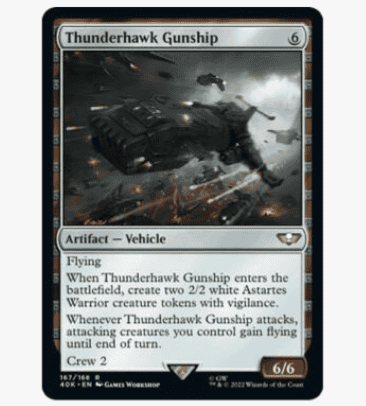
And when this beast of a vehicle decides to attack, it brings the whole squad into the sky, granting all your attacking creatures flying until the end of the turn. Oh, and it’s Crew 2, so getting it off the ground isn’t too much of a hassle. A 6/6 Artifact Vehicle with a casting cost of 6 and rare status? Yeah, it’s a high-flying powerhouse.
The Impact of the Thunderhawk Gunship in Warhammer 40k
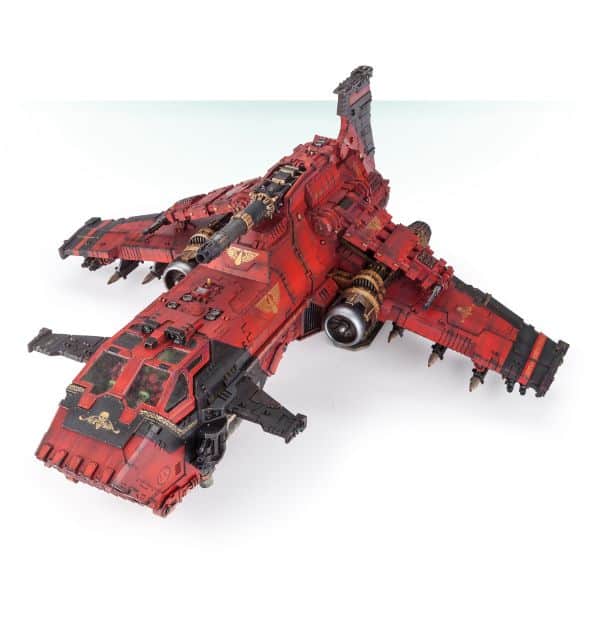
The Thunderhawk Gunship isn’t just a showpiece; it’s a beast of a machine that brings serious firepower to the battlefield. Imagine rolling up to a skirmish with a tank that also flies – that’s the Thunderhawk for you.
It can transport up to thirty Space Marines or a dozen Terminators, dropping them right into the heart of battle where they can cause the most havoc. It’s like calling in an airstrike, but the bombs are angry, genetically-enhanced super-soldiers.
In terms of gameplay, the Thunderhawk offers several strategic advantages. Its heavy armor and massive arsenal make it a flying fortress capable of taking and dishing out a tremendous amount of damage. Equipped with a Turbo-laser Destructor, twin-linked heavy bolters, and a host of other weapons, it can engage both ground and air targets, making it a versatile asset. It’s not just a transport; it’s an airborne battleship that can alter the tide of war with its presence.
Representation in Warhammer Lore
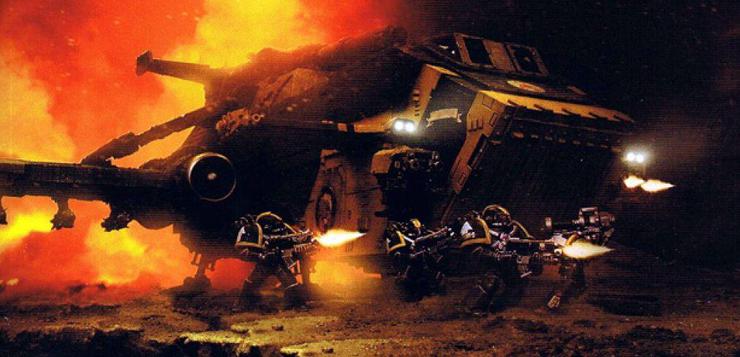
The Thunderhawk’s reputation is such that its mere sight can demoralize enemies. It’s been featured in countless novels, codices, and campaign settings, often highlighted as a key player in decisive moments. From the Horus Heresy to the Indomitus Crusade, the Thunderhawk has been there, raining destruction from the skies and delivering hope to beleaguered Space Marines.
Influence on Other Warhammer Models

The Thunderhawk’s design has left a significant mark on the aesthetic of other Warhammer 40k models. Its bulky, no-nonsense design language has influenced a range of Space Marine vehicles, from the Stormraven Gunship to the Stormtalon. The aggressive lines, robust construction, and multi-role capability are hallmarks that have trickled down through various kits.
One of the most notable design elements is the Thunderhawk’s distinctive prow, which has become a recurring motif in other Space Marine flyers. Its modular weapon systems have also inspired a trend towards customization in newer models, allowing hobbyists to kitbash and magnetize their kits for various loadouts.
Legacy in Warhammer 40k Miniatures
The Thunderhawk has cemented its place as an iconic miniature within the Warhammer 40k universe. Its evolution from the original pewter model to the modern resin and plastic versions showcases the advancements in miniature design and manufacturing. Each iteration of the Thunderhawk has pushed the boundaries of what’s possible in terms of detail, complexity, and sheer scale.
This model’s legacy extends beyond its own iterations. It has set a standard for what fans expect in terms of large-scale kits. The Thunderhawk’s influence is evident in the ambitious designs of contemporary models, encouraging Games Workshop to continually innovate and raise the bar for their miniature line.
Final Thoughts on the Thunderhawk Gunship in Warhammer 40k
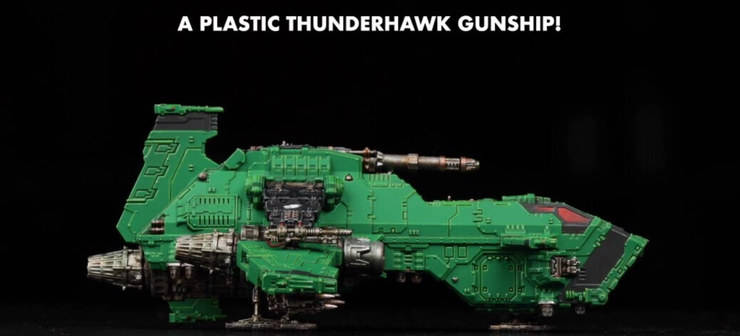
Whether you’re just getting into Warhammer 40k or you’ve been around since the days when the rulebook was more flexible than a rubber band, the Thunderhawk remains a symbol of the game’s rich history and its dynamic future. Building and painting one is a rite of passage, a testament to your dedication (or masochism, depending on who you ask).
So, next time you see a Thunderhawk swooping down to unleash its payload of super-soldiers and devastation, take a moment to appreciate the craftsmanship, the lore, and the sheer awesomeness of this flying fortress. And remember, sharing your Thunderhawk tales and tips not only keeps the community thriving but also ensures that the legend of the Thunderhawk continues to soar across the Warhammer 40k universe. Happy hobbying, and may your glue always stick and your paint never smudge!
All 20 Warhammer Primarch Origins Current Status & Iconic Moments
What do you think about the lore of the Thunderhawk in Warhammer 40k? Will you be building one up for the tabletop?
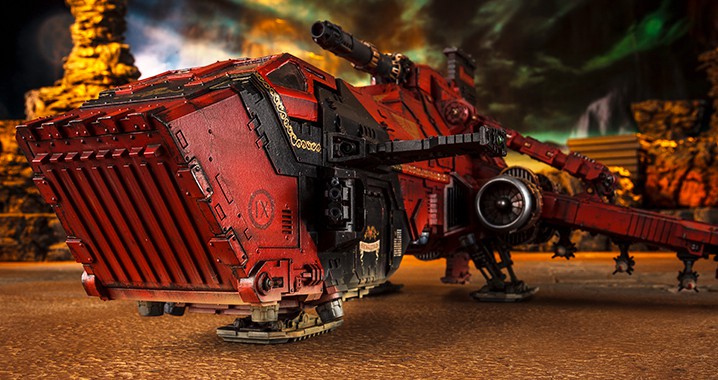
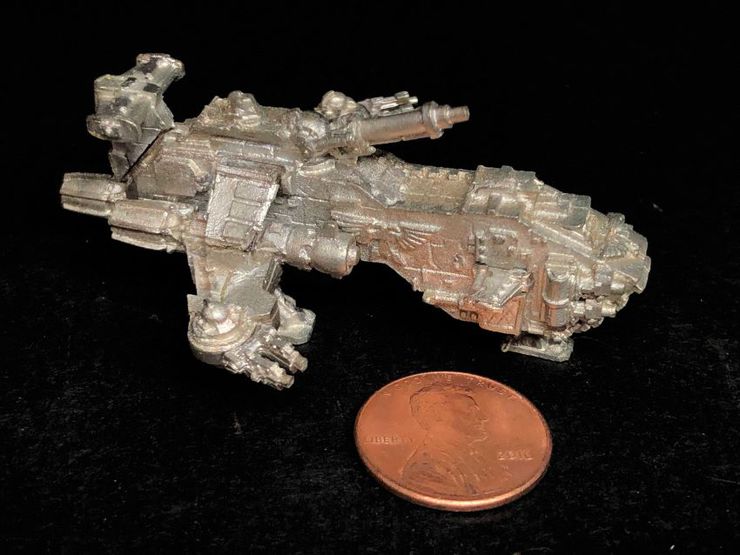
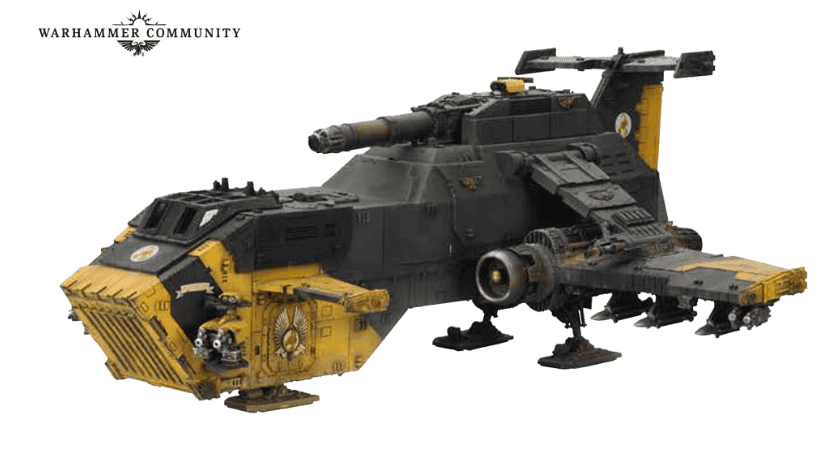
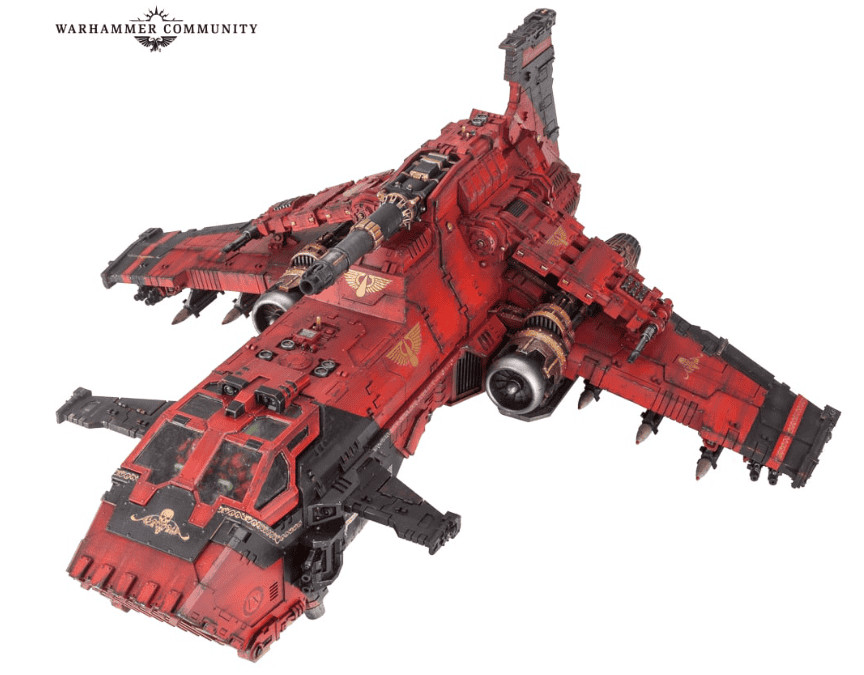
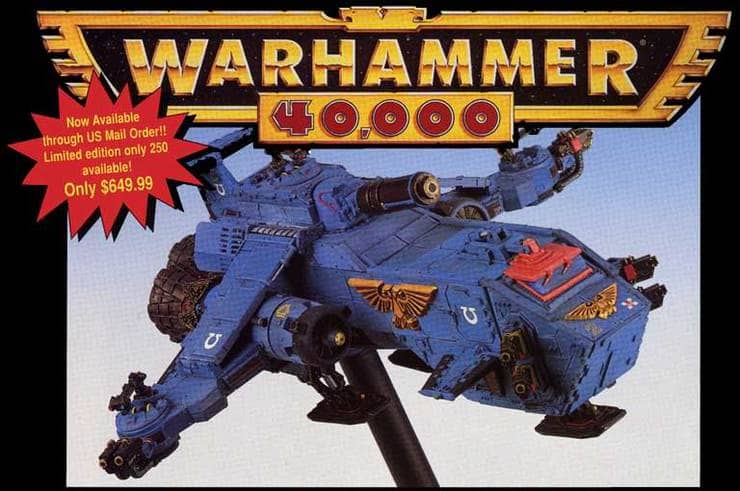
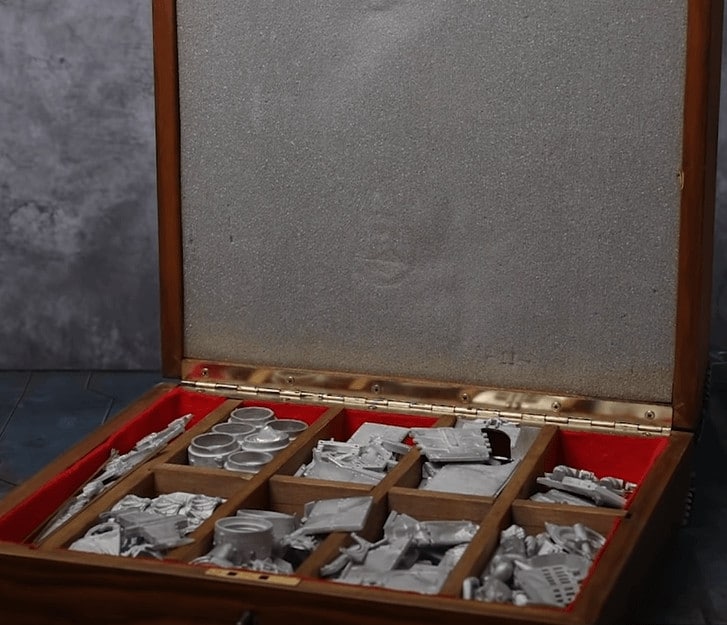
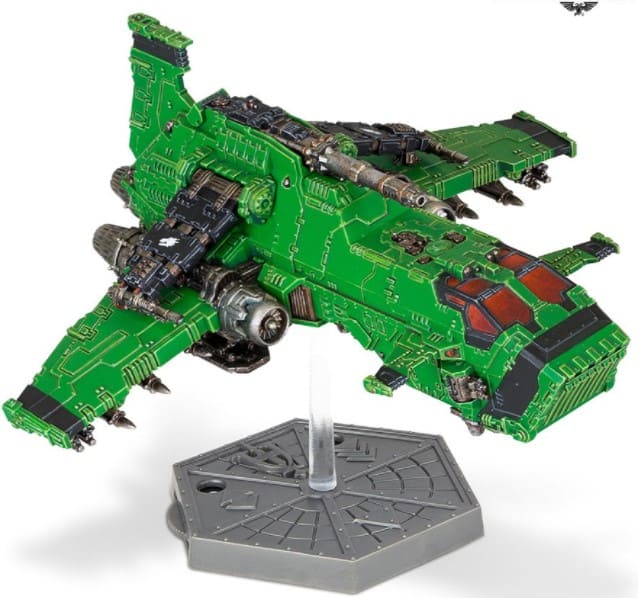
![Games Workshop - Warhammer - Legions Imperalis: Legions Astartes Thunderhawk Gunship [Epic Scale]](https://m.media-amazon.com/images/I/41zcYCijX2L._SL160_.jpg)
